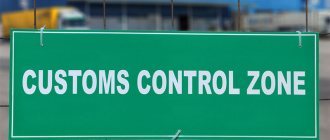- RusTender
- Question answer
- 44-FZ
- Anti-dumping measures: working mechanism
When conducting procurement, Law No. 44-FZ establishes anti-dumping measures.
Dumping is the sale of goods at artificially low prices.
Anti-dumping measures are a whole range of measures against those who do not like fair play.
Dumping brings absolute harm to both contractors and customers. Contracts with artificially low prices most often mean fraud: the dumping contractor takes the advance payment, and the work remains uncompleted. On the other hand, the imposition of unfavorable conditions, and this is precisely what dumping inevitably leads to, contributes to a general decline in the level of work and the quality of supplied products.
What is the result? Unscrupulous contractors profit while new, truly low-cost suppliers are prevented from entering the market. To stop the emerging trend, Article 37 of Federal Law 44 on anti-dumping measures appeared.
Let us examine in more detail what mechanisms 44-FZ provides for combating unscrupulous contractors.
Concept
Anti-dumping measures are one of the legislative regulations designed to combat artificially low prices in the areas of government and corporate procurement.
In economic theory, the concept of dumping implies the sale of goods at a price much lower than the market price, and sometimes even lower than cost. This is done to gain a competitive advantage and push other participants out of the market.
In the areas of competitive auction procurement, dumping is a fraud that directly harms both suppliers and customers, violating the norms and principles of fair trade. If a supplier is found to be using prohibited practices when participating in procurement tenders, it may be subject to preventive sanctions to eliminate illegal trading practices.
Suspicions of dumping may arise when working with tenders whose value of the contract differs from the declared value by 25 percent or more.
The minimum acceptable gap is 20 percent, otherwise the supplier will have to prove its good faith. The punishment includes liability and penalties.
In the countries of the World Trade Organization (WTO), a specialized anti-dumping agreement is in force - VI GATT-94. This document is necessary to regulate pricing policy in international trade and establishes the rules and procedures for conducting anti-dumping investigations.
The WTO Code is applied if, in the process of trade, there is a possibility of material damage to the national production and economy of the importing country.
At the same time, a price gap of less than 2 percent has no basis for the application of sanctions, and investigations can begin only if the cost of a product differs by 3 percent or more.
How to avoid dumping?
Unfortunately, as stated in the introduction, there is still no solution. All that remains is to wait until the state carries out all the necessary research to tighten the measures and make them really work.
At the moment, we can only give a few tips that, although they will not correct the situation, will help you encounter dumping a little less often:
- If it is possible to change or adjust the niche in which you work, then try to switch to procurement that evaluates not only price, but also non-cost criteria. This option will increase your chances of winning due to the quality of the services or products offered.
- Try to participate in tenders with the placement type based on requests for quotes. This method is much more difficult for dumping, because it is impossible to find out the offers of competitors. Without this information, the dumping company will have to send a price proposal at random, and if it turns out to be much lower than the competitive one, this will be lost profit.
- Contact FAS. If during the procurement you have doubts, questions or confidence in dumping, the agency may recognize the competitor as unfair. As a result, there will be one less dumper, and you will get a second chance to pick up the contract.
Confirmation of good faith
Anti-dumping measures under 44-FZ may be applied by mistake, in which case the supplier has the right to confirm its good faith in the event of suspicions of underestimating the contract price.
The confirmation itself is the provision of information, which mainly includes information from various registers, as well as evidence of the supplier’s good faith performance of its obligations under previously concluded contracts.
You can confirm your integrity if:
- Within one year before the date of conclusion of the current contract, the organization fulfilled its obligations under 3 or more contracts, without penalties and fines being applied to it.
- During the two years prior to the conclusion of this supply agreement, 4 or more contracts were executed, 75 percent of which were completed without fines or penalties.
- During the three years before the signing of the current contract, 3 or more contracts were fulfilled in good faith, each of which has no penalties or accrued interest.
The value of at least one of the past contracts must be at least 20 percent of the amount of the current contract being concluded.
For example, if the amount of the current contract is 100 million rubles, then at least one of the three contracts executed without fines and penalties within the above periods must have an amount of 20 million rubles.
Confirmation of good faith does not apply in cases where the initial maximum contract price (IMCP) exceeds 15 million rubles, and the supplier offers a price that is 25 percent or more lower than the original price.
In this case, the conclusion of a contract is possible only after making a demand for its security, the amount of which is one and a half times higher than that indicated in the documentation.
Information confirming the participant’s bona fides during anti-dumping measures
Part 3 art. 37 sets out the requirements for this information. The participant can prove his integrity by providing information from the register of contracts confirming the conclusion of 3 contracts completed without fines or penalties within 3 years prior to submitting an application for the current competition or auction.
In this case, the amount specified in one of the contracts must be at least 20% of the cost of the contract, for the conclusion of which the company confirms its good faith.
In the case of an electronic auction or tenders in electronic form, this information is provided along with the signed draft contract.
And if any type of competition (open, closed, etc.) was held in printed form, then this information must be attached as part of the application.
Advice : the supplier must remember that for confirmation it is enough to provide registration numbers by which the customer can independently find the specified contracts in a single register. The customer has no right to demand any copies of documents or a certain form of confirmation.
Also, the Ministry of Finance explains that if the price falls by a quarter or more, anti-dumping measures are not applied in cases where the purchase is carried out at the price of a unit of goods, work or service. This method is used when the final volume of GWS under the contract is not known in advance.
If, by the time the contract is signed, the participant has not provided the required list of documents confirming its reliability, then he is recognized as “Avoiding the conclusion of the contract.” This is how the application of anti-dumping measures is expressed.
According to the developers of this article of the law, such measures will scare away unscrupulous contractors even before the start of the competition or auction.
In order to determine in advance a purchase, the probability of which will be carried out in bad faith will be high, you need to know several rules. Guided by them, you can quite accurately learn to identify purchases in which dumping and collusion of participants will be present. You can find details about this and much more in our State Order training course.
Online training course on obtaining government orders
Take the courseDiscounts!
Application according to 44-FZ and 223-FZ
Anti-dumping measures under 44-FZ, the contract enforcement of which exceeds 15 million rubles, arise if a supplier or contractor offers contract performance at 25 percent below the NMCC. This provision is enshrined in Article 37 of 44-FZ and requires the mandatory payment of the amount of security requirements that exceeds the documented amount by one and a half times.
If suspicions of price dumping appear during the auction (that is, the contract amount is also lower than the NMCC by 25 percent or more), the winner of the competition must confirm his good faith and honesty by attaching the relevant documents to the signed contract. Otherwise, it may be included in the FAS register of unscrupulous suppliers.
The best solution when working with low prices is to attach documents confirming good faith to applications sent to the competition. In this case, the commission reviewing the candidates for supply immediately approves or rejects the participants if inconsistencies are detected in the submitted data.
There are significant differences between paper and electronic methods of participation in procurement auctions. In the first case, it is necessary to attach documents confirming good faith to the application for participation in the auction. In electronic form, these documents are attached only at the time of conclusion of the contract.
As for anti-dumping measures under 223-FZ, they are based on the Constitution and Civil Code of the Russian Federation, as well as federal laws. The procurement procedure and conditions for accepting fulfillment of obligations under the contract are regulated by Article 2 No. 223-FZ.
It follows from this that customers working within the framework of this federal law independently determine the conditions and rules for holding auctions, including anti-dumping measures applied to auction participants. Often these rules may differ from those specified in Article 37 of 44-FZ.
Additional measures
Article 37 of 44-FZ also provides for additional measures that are applied in addition to the main provisions of anti-dumping measures (ADM) when participating in auctions in certain product areas.
These areas include:
- Food;
- means for providing medical and emergency aid, including equipment for emergency and emergency treatment;
- fuels and lubricants;
- medications;
- equipment for design and research centers;
- performing technical work and providing consulting services.
44-FZ does not contain requirements for mandatory justification of the contract value, and it is carried out in an arbitrary form to prevent the use of additional measures related to the above-mentioned categories of goods.
The following can be attached to the cost justification:
- Letter of guarantee from the manufacturer of this product.
- Documented confirmation of the availability of this product from the supplier.
- Other documents that guarantee the fulfillment of delivery and obligations under the contract.
By attaching these documents to your application, you will be protected from customers who will not be able to cancel it due to an unreasonable price, and further anti-dumping measures will be applied only on a general basis.
A special provision concerns commodity items consisting of drugs included in the list of vital and essential drugs (VED). Additional measures arise when the cost is reduced by 25 percent not from the NMCC, but from the manufacturer’s selling price.
Thus, even if the price is lower than the permissible NMCC, but higher than the selling price, the general ADM grounds will not apply to such a contract, and vice versa. These measures apply only to the list of vital and essential drugs; other drugs are subject to the general principles of anti-dumping legislation.
Application of anti-dumping measures in 44-FZ
In some cases, contracts for carrying out the following are subject to the conditions of anti-dumping measures regarding a 25 percent difference between the initial and proposed prices:
- research;
- consultations;
- developments.
Naturally, in everything related to scientific activity, the cost of work is not always the decisive criterion. In these cases, the customer has the opportunity to identify factors that are important to him. At the same time, the evaluation system may be different for those who offer a price with a difference of less than a quarter of the initial price or more.
In addition to all anti-dumping measures, 44-FZ, paragraph 9, in the case of contracts relating to vital items (medicines, food, emergency supplies), requires the provision of documents justifying the low price and guaranteeing the possibility of timely delivery. Naturally, the question arises: in what case will anti-dumping measures not be applied? Only if we are talking about the purchase of medicines from the list approved by the Government of the Russian Federation.
© RusTender LLC
The material is the property of tender-rus.ru. Any use of an article without indicating the source - tender-rus.ru is prohibited in accordance with Article 1259 of the Civil Code of the Russian Federation
Features of application for SMP and SONKO
Anti-dumping measures will not be applied if you pay an increased security amount. However, if you are operating under SMP or SONCO restrictions, you may be legally exempt from posting the required security if you provide registry information about the performance of at least three contracts.
These contracts must be without succession and entered into no earlier than three years before the current date. In this case, the amount of contracts must be equal to or exceed the current amount of NMCC, and the contracts themselves must be executed without penalties and penalties.
If you do not provide this information, the standard ADM rules will apply to you and you will have to pay the security amount calculated on a general basis.
Responsibility
Responsibility for failure to provide information about the integrity of the supplier organization, the need for which arises in cases provided for by the general provisions of anti-dumping grounds, is regulated by Part 4.2 of Article 7.30 of the Code of Administrative Offenses of the Russian Federation.
The fine is 3,000 rubles and is applied to an official who has knowingly entered false information into the tender documentation and documentation with requests for quotations and proposals, violating the requirements imposed by law.
In addition, the absence of evidence of good faith when concluding a contract in electronic form entails the organization being included in the register of unscrupulous suppliers for a period of two years.





